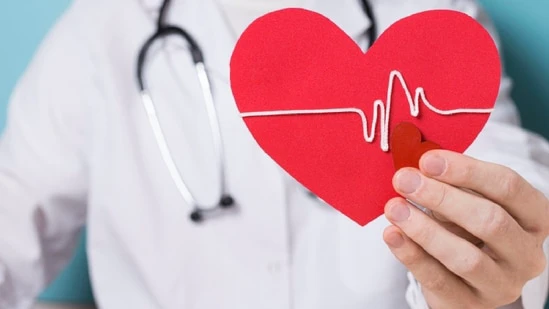Have you ever experienced a sudden increase in heart rate while sitting, lying in bed or even during a calm moment at work? The feeling can be unsettling as it often comes without warning or a clear cause.
While a fast heartbeat, or tachycardia, can sometimes signal a medical condition, in many cases, the cause is manageable, says an interventional cardiologist.
What is a normal heart rate?
A normal resting heart rate for adults ranges from 60 to 100 beats per minute (bpm). Factors such as age, fitness level, medication use, and time of day can influence this range. Athletes, for example, may have resting heart rates below 60 bpm due to higher cardiovascular efficiency, Dr Nagendra Singh Chouhan, Senior Director – Interventional Cardiology, Cardiac Care, Medanta, Gurugram, tells Health Shots.
When the heart beats faster than 100 bpm while at rest, this is classified as tachycardia. It becomes a concern when it occurs frequently, lasts a long time, or is accompanied by other symptoms like chest pain, dizziness, or shortness of breath.
Understanding the possible reasons behind a rapid heart rate and knowing when to seek medical attention can help reduce anxiety and support cardiovascular health.
Common causes of unexplained fast heart rate
1. Anxiety and Stress
Emotional stress or anxiety is one of the most common causes of a sudden increase in heart rate. “The body’s ‘fight or flight’ response activates the release of adrenaline, which increases heart rate even if there is no physical danger. Panic attacks, in particular, can lead to episodes of palpitations or pounding heart sensations,” says Dr Chouhan.
2. Dehydration
A drop in blood volume due to dehydration can cause the heart to beat faster in order to maintain adequate circulation. Even mild dehydration may lead to a noticeable change in heart rate, especially during activity or heat exposure.
3. Caffeine or Stimulants
Substances like caffeine, nicotine, certain cold medications, or energy drinks can stimulate the heart. These substances increase adrenaline activity and can lead to palpitations or a rapid heartbeat.
4. Hormonal changes
Hormonal fluctuations, particularly in thyroid function or during menopause, can affect heart rhythm. Hyperthyroidism, a condition where the thyroid gland produces too much hormone, can cause persistent tachycardia, even at rest, adds Dr Chouhan.
5. Arrhythmia
In some cases, an irregular electrical pathway in the heart may cause brief or sustained episodes of tachycardia. Supraventricular tachycardia (SVT), for example, can cause sudden bursts of rapid heart rate that begin and end abruptly. These are generally not life-threatening but may require medical evaluation and treatment.
6. Postural Orthostatic Tachycardia Syndrome (POTS)
This condition, often seen in younger adults, involves an abnormal increase in heart rate upon standing. It can cause symptoms such as light-headedness, fatigue, and palpitations and may require lifestyle changes or medical therapy.
When to see a doctor?
A fast heartbeat that occurs occasionally and resolves on its own is usually not dangerous. However, medical attention is recommended if:
- The heart rate exceeds 120 bpm at rest
- There are symptoms like chest pain, shortness of breath, or fainting
- Episodes are frequent or worsening
- There is a known heart condition or risk factors for heart disease
A doctor may recommend tests such as an electrocardiogram (ECG), blood work, or a Holter monitor to evaluate heart rhythm over time.
What to do when your heart beats faster?
If the fast heartbeat is not accompanied by other concerning symptoms, some simple strategies can help, according to the heart specialist:
- Slow, deep breathing can help activate the parasympathetic nervous system, which slows the heart rate.
- Hydration with water or electrolyte fluids may help if dehydration is a factor.
- Avoid stimulants
- Consider reducing stress through mindfulness, exercise, or relaxation techniques.
- Also, do consult your physician after any such episode.
